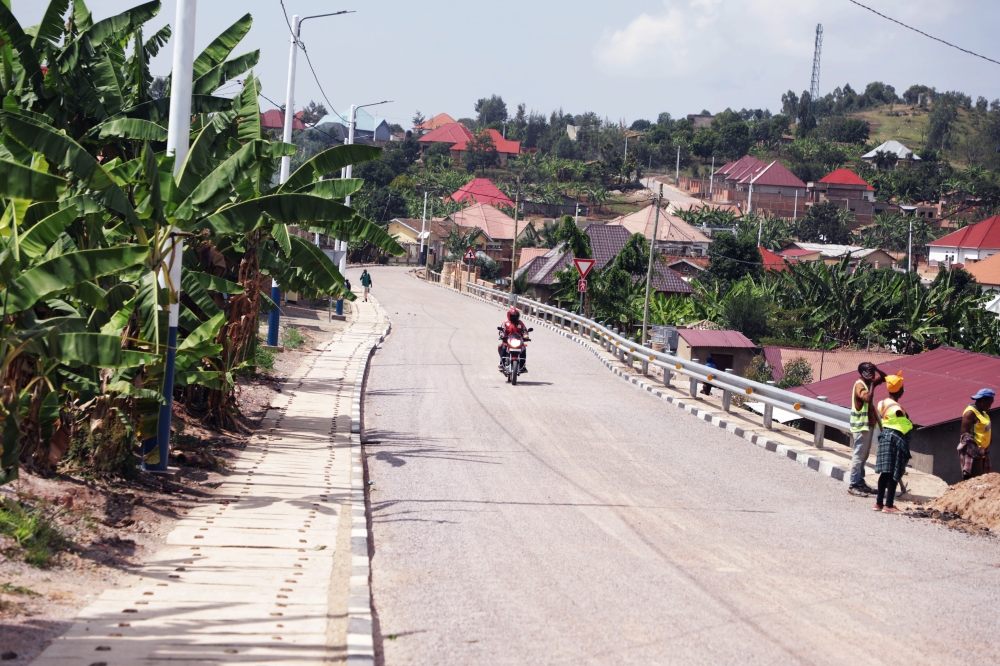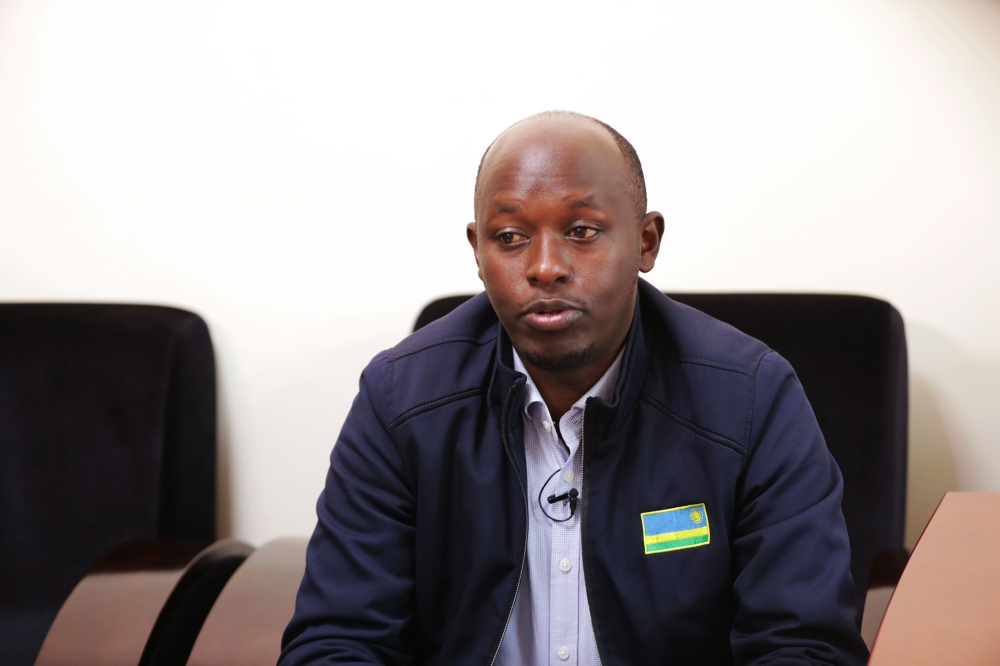

Muhanga District, one of Rwanda’s rapidly expanding satellite cities, is witnessing a profound transformation. The implementation of significant infrastructure projects, including the construction of new paved roads and the development of an industrial park, is reshaping the region.
In the fiscal year 2022/2023, the budget allocation for Muhanga District experienced an increase, reaching Rwf 24.8 billion, up from Rwf 22.7 billion in the previous year.
This enhanced financial support has enabled the execution of multiple vital projects, including the construction of a seven-kilometre paved road, as well as the installation of new water supply lines. These efforts align with Rwanda’s ambitious objectives to achieve universal access to water, basic sanitation, and hygiene services by 2024 and ensure their safe management by 2030.
The industrial park, covering over 67 hectares, has now become home to five industries. In August 2023, President Kagame inaugurated a cement factory operated by Anjia Prefabricated Construction Rwanda. It is expected to provide employment opportunities for over 1,000 individuals.


The industrial park has also welcomed other enterprises, such as Seven Hills, specialising in kitchen materials, and Mountain Ceramics Company Ltd, focused on floor tile production, alongside others specialised in hygiene materials and mineral products.
Bizimana Eric, the Vice Mayor in charge of economic development in Muhanga, emphasised the substantial opportunities these developments have created for local residents in terms of employment.
This progress is attributed to the presence of key infrastructure, significantly advancing the quality of urban life in Muhanga.
The Rwandan government has set a target for 35 per cent of the population to reside in urban areas by 2024, a goal that is now steadily taking shape.
"We focused on building a 6.9 kilometre paved road at a cost exceeding Rwf 5 billion. It was a project that had to be completed by May this year, but climate change issues necessitated an extension of the deadline. Now, we are in the final stages,” Vice Mayor Bizimana said.
Another noteworthy project addressed the construction of 2.6 kilometres of water drainage systems at a cost of Rwf539.7 million.
"We understand that once these infrastructure projects are completed, we need to protect them and establish drainage. This has been rejuvenating Muhanga District,” Bizimana added.
Significant progress has been made with the construction of water supply lines in the Mushishiro and Nyarusange sectors, which previously had the lowest access to clean water.
A feasibility study paved the way for the construction of 31.4 kilometres of water supply lines, with a budget of approximately Rwf 500 million. An additional Rwf 262 million has been allocated for the current fiscal year.
"This initiative aims to bring critical water resources closer to the public, ensuring that citizens do not need to travel more than 500 metres to access clean water in rural areas,” he emphasised.
Furthermore, electricity access has expanded to benefit 3,500 households, a part of a broader initiative to electrify 20,000 homes. This endeavour not only brings electricity to more residents but also creates new job opportunities, fostering positive changes in their quality of life.
In addition to these developments, new health posts have been established in Muvumba and Nyabiboni, with a cost of Rwf 24.9 million, in addition to the construction of 16 classrooms, amounting to Rwf 138.5 million.
Three Technical and Vocational Education and Training (TVET) wings, designed to advance vocational training, and the teachers’ residences, budgeted at Rwf 60 million, were also built.
Alice Kayitesi, the Governor of Southern Province, underlined the importance of tax compliance and encouraged all residents to adhere to tax laws.
"Considering the vital role our taxes play in national development, we should all ensure the delivery of EBM receipts in our business transactions. We have not yet reached the level we should attain. Sellers should consistently provide receipts without requiring a reminder. As clients, we must retain the EBM receipt for every purchase, closing any opportunity for potential tax evasion,” she emphasised.
Given the significant volume of business activities in Southern Province, Kayitesi insists that surpassing tax collection targets is essential for regional growth and plays a pivotal role in advancing national development.


